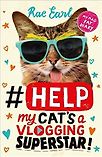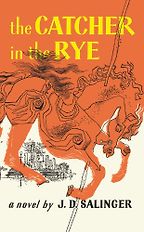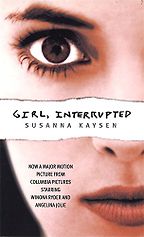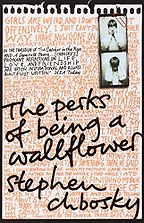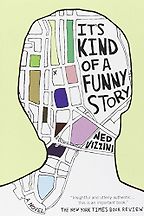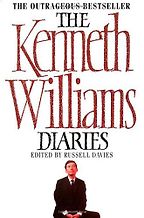Young people today seem to me to be much more open about their mental health issues. There is less stigma attached.
I think that when something has been repressed for so long and then a few people say ‘I feel this way’, then it is validated and you will get a period of outpouring. This is a totally natural part of the process. Hopefully, in this way, it will become normalised. In that, it will be normal and acceptable to reach out for help if you are experiencing pain. And it just becomes a thing we can talk about. We don’t have to wear it as a label but we can talk about it and sort it out.
Every generation has its own minefield to negotiate and the digital world, especially social media, with its promises of friendship and fulfilment, is a particularly complex, dangerous and rewarding area. It must be incredibly difficult for a young person today, under the online peer pressure of social sites, to get to grips with the world and their place in it.
In this respect we had it far easier in our generation. We may have had stigma but we knew where our bullies were. They lived in the classroom, or on the way back home from school. Your bullies now can be in a device you hold in your hand—and they can say a lot of really unpleasant things. Very, very quickly. And they can tell all your friends. It can go pear-shaped very, very quickly. And this is why managing mind-health has never been so important.
When I wrote my #help book. I was very, very mindful of that. I love social media. I don’t use it as a forum for debate I just give my opinion. But I can see how it can go wrong very quickly and I have seen it go wrong. We can’t help this generation, in one sense, because they know more about this technology than we do. But we can, as the older generation, offer old-fashioned wisdom. This is timeless— how to look after your head, whom to listen to and whom to ignore, how to judge the opinions of others.
At the same time, on the internet, there is a fantastic celebration of weirdness. If I’d had the internet when I was 17 I could have found other people like me—that would have eased the loneliness. And perhaps I wouldn’t have felt so alienated. It’s not all bad.
You said the word “alienation” and this draws us neatly to Catcher in the Rye. It was published in 1947, it’s the earliest of your choices, and yet the themes of innocence, identity, loss of connection and angst mean that Holden could be speaking today.
This is the only book I read when I was a young adult. I believed it was cursed for me—it was the book I read directly before I had a breakdown. I thought that somehow reading the book had triggered my breakdown. I found Holden when I felt exactly the same as he did. When he was with his sister he wanted to be a child, but he was being thrust into this adult world. And he didn’t want to be. And that’s where so much of my anxiety came from too. I remember reading it. I’ve still got the same copy that I had then and there are little paragraphs and sentences that I’d ringed. With Holden I discovered that there were other people that felt the way I did. When I found out that it had been written so long ago, I found something comforting about that. Before I read this book, it felt to me, that I was alone and going through something unique and unknown. But apparently others, even in the far past had had the same experience. So I took from it that this was a rite of passage—this time was difficult for most people. It was a transformative book for me. And I love it for that. It explained things for me at a time when I couldn’t have explained them myself.
“When you’re young, it’s like the words are on the top shelf and you have to go on tip-toe to get them down”
Conditions like anxiety and depression—and their prescribed medications—cause you to feel jumbled in the head. You can’t reach for the words you need. You somehow haven’t got the words. It’s like the words are on the top shelf and you have to go on tip-toe to get them down. That’s when books like this can do the talking for you. It gives you a platform to express yourself. And that’s really the important part.
Holden faces some terrifying situations for someone of his age—driven by his burgeoning sexuality he hires a prostitute but ultimately he only wants to talk to her. And then he gets into trouble for this.
The sex thing is very important. I was a very innocent teenager (until I wasn’t), yet desperate to experience the adult world of sensuality and sexuality. This sense that getting yourself into a situation that you want to get out of almost immediately. I could identify with that. You just feel less of a freak. When you are a teenager there is a temptation for bravado—to show off about losing your virginity or other such initiations. No one talks about the uncomfortable bits of growing up. So it’s a relief in Catcher in the Rye to read about the prickly discomforts of growing up. These run vividly all through the book.
I’m a mother of very young children, although my nieces and nephews are approaching their teens. As a result I’ve had a lot of conversations with mothers about preparing ourselves for this potentially tumultuous phase. Girl Interrupted gave me a sense of vertigo reading it. When she says “Some fall into insanity and others just snap”, there’s this idea that you could just fall into a void…
But then they can come back! That is what I love about this book. At the end when people come back into life and she sees them coming back into life. That is important.
You have this cataclysmic experience in the hospital. But by the end she comes full circle and she comes out again. And the nature of her delusions I really identified with. The disbelief of reality—she has to see x-rays of her bones to believe they are there. What is happening in her head has more hyper reality than the real world. Having gone through periods of OCD when you feel you are in control of so much, when someone tries to tell you what is really happening, you really don’t believe them.
Linguistically she collapses—she goes into staccato sentences. I still struggle with this—in anxiety there are feelings I have trouble vocalising. In this book and in her use of language she explores how the brain tumbles. A lot of people with mental health problems do struggle with language. Even if you want to tell someone how you feel you can’t find the words. So you just come out in a mumble, or a cliché, or you just stay quiet.
The characters in Girl Interrupted suffer from: borderline personality disorder, child abuse, sociopathy, anxiety, OCD, schizophrenia, pathological lying, drug addiction and depression. Their stories and experiences reminded me of an RD Laing quote: “Insanity is a perfectly rational adjustment to an insane world.”
Perks of Being a Wallflower by Stephen Chobsky, my next choice, takes that idea on. Because here is someone with post traumatic stress disorder which we don’t find out until the end. It touches on the good old well-traversed themes of relationships, arguments and sexuality but you get this killer at the end… the big reveal. That really hit home for me. Because I was involved in a historic sex abuse case. Years ago. I don’t think I had PTS disorder like he did but I know how difficult it is to come to terms with what has happened. I didn’t love my abuser but the protagonist in this book did. And we are very used to seeing abusers as evil and usually male. But here the abuser is female and he, the victim, manages to feel sorry for her.
It is a tremendously powerful study of PTSD. And this is a mental health issue that isn’t talked about enough. There is a fantastic quote at the end of Perks of Being a Wallflower “Even if we don’t have the power to choose where we come from, we can still choose where we go from there.”
“Even if we don’t have the power to choose where we come from, we can still choose where we go from there”
That is beautiful and empowering. We have no power when we are younger to control adults—and some adults can be very damaging. But we can, with the right help, choose where we go afterwards. I think that is a very important message.
Your next book is It’s Kind of a Funny Story by Ned Vizzini. Tell me about this.
This is the most difficult of the books I picked. It covers something the other books don’t cover which is relapse. The feeling of recovery when you haven’t. He starts taking his tablets and he feels great. He thinks he is cured. I’m fine, he thinks, I’ll stop taking the tablets.
I remember after my breakdown. I remember the euphoria—thinking I was invincible—this was the end of everything bad in my life and I’d never be ill again, and this was a whole new start. And, of course, that wasn’t the case. I love the way that is handled in this book.
Even though he clearly isn’t well he feels he shouldn’t be in a psychiatric ward. And psychiatric wards are full of people who don’t think they should be there. This is partly denial and shame and I love the way the book deals with this.
But I struggled choosing this book because Ned, in the end, took his own life. His suicide inevitably tinges everything with sadness. There is a motif of recovery and relapse in the book that is significant beyond the fiction.
For most people who suffer from mental health issues it is a condition that is going to have to be coped with long term whether it be with medication, behavioural change, therapy, or a combination of all. And some people may need medication all their lives and that is ok.
Your final choice is the Kenneth Williams Diaries.
This is my favourite book of all time. It is the most devastatingly honest account of a person who was clearly a manic depressive. You can trace his mania and depression day-by-day. I don’t think there is a more eloquent account of how that feels. There is something about him I love. He goes out and makes an exhibition of himself. He hates himself for it. There is such self-criticism all the way through—even from very early on. It’s also a study of sexual repression and his sexuality was illegal until 1967. It is a study of how destructive denial can be.
“He captures dark moments, failings, inconsistencies and moments of great beauty with wit and spiky honesty.”
I think there is something innocent and quite sweet about him that is very youthful. In a way he never leaves his youth and that is part of his appeal. I know there is some graphic stuff in there but no more graphic than anything in my other choices. It isn’t classed as a YA book—but it is a good book to read when you are a teenager. He can be adorable, repugnant, racist, eloquent and self-deprecating. It’s a study of the human mind: the good, the bad, the nasty, the sane, the insane. Which is refreshing as there’s a lot of time spent pretending we are all so nice these days. He captures dark moments, failings, inconsistencies and moments of great beauty with wit and spiky honesty.
Interview by Zoe Greaves
April 6, 2017. Updated: April 15, 2025
Five Books aims to keep its book recommendations and interviews up to date. If you are the interviewee and would like to update your choice of books (or even just what you say about them) please email us at [email protected]
Five Books interviews are expensive to produce. If you've enjoyed this interview, please support us by donating a small amount.

